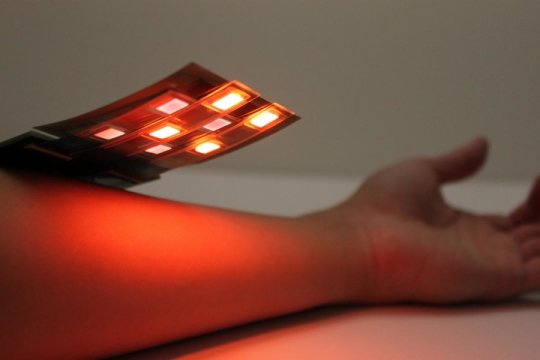A diet high in fats and sugars is known for its unhealthy effects on the heart. Scientists now have found that a high-fat, high-sugar diet in mouse mothers before and during pregnancy causes problems in the hearts of their offspring, and that such problems are passed down at least three generations, even if the younger generations only eat a standard mouse chow diet. The study, from Washington University School of Medicine in St. Louis, is published March 22 in the journal AJP-Heart and Circulatory Physiology. The study also suggests that diet-induced…
Read MoreCategory: Health
Immunotherapy of precancerous skin lesions may prevent squamous cell carcinoma
A treatment previously shown to clear the precancerous skin lesions called actinic keratosis now appears to reduce the chance that the treated skin will develop squamous cell carcinomas (SCCs), the second most common form of skin cancer. In their paper being published online in JCI Insight, a team led by a Massachusetts General Hospital (MGH) investigator reports that treatment with the combination of two FDA-approved drugs — a topical chemotherapy and an immune-system-activating compound — reduced the risk of SCC development on the face and scalp by almost 75 percent. “This…
Read MoreBrain-inspired AI inspires insights about the brain (and vice versa)
Can artificial intelligence (AI) help us understand how the brain understands language? Can neuroscience help us understand why AI and neural networks are effective at predicting human perception? Research from Alexander Huth and Shailee Jain from The University of Texas at Austin (UT Austin) suggests both are possible. In a paper presented at the 2018 Conference on Neural Information Processing Systems (NeurIPS), the scholars described the results of experiments that used artificial neural networks to predict with greater accuracy than ever before how different areas in the brain respond to…
Read MoreBalanced diet, exercise may not prevent gestational diabetes
It may be time to reconsider the conventional wisdom for preventing gestational diabetes: limiting weight gain and increasing physical activity. “Our data suggest that in pregnancy, energy balance — the calories consumed versus the calories burned — may not determine the development of gestational diabetes,” said Leanne Redman, PhD, director of LSU Pennington Biomedical Research Center’s Reproductive Endocrinology and Women’s Health Lab. “We and others now believe that there are different types of gestational diabetes that warrant different approaches to treatment and prevention.” The new Pennington Biomedical study is the…
Read MoreSkin-like sensor maps blood-oxygen levels anywhere in the body
Injuries can’t heal without a constant influx of blood’s key ingredient — oxygen. A new flexible sensor developed by engineers at the University of California, Berkeley, can map blood-oxygen levels over large areas of skin, tissue and organs, potentially giving doctors a new way to monitor healing wounds in real time. “When you hear the word oximeter, the name for blood-oxygen sensors, rigid and bulky finger-clip sensors come into your mind,” said Yasser Khan, a graduate student in electrical engineering and computer sciences at UC Berkeley. “We wanted to break…
Read More
